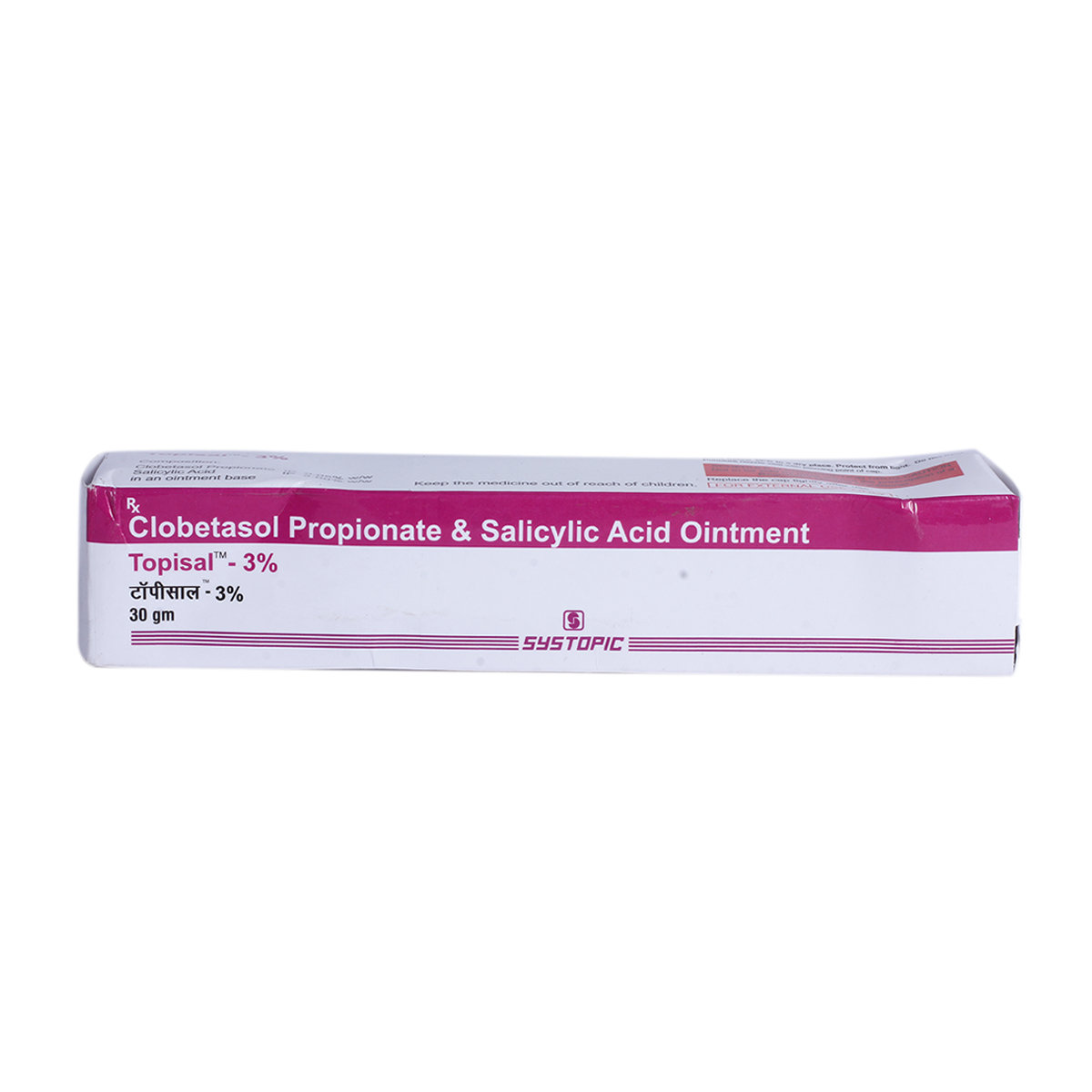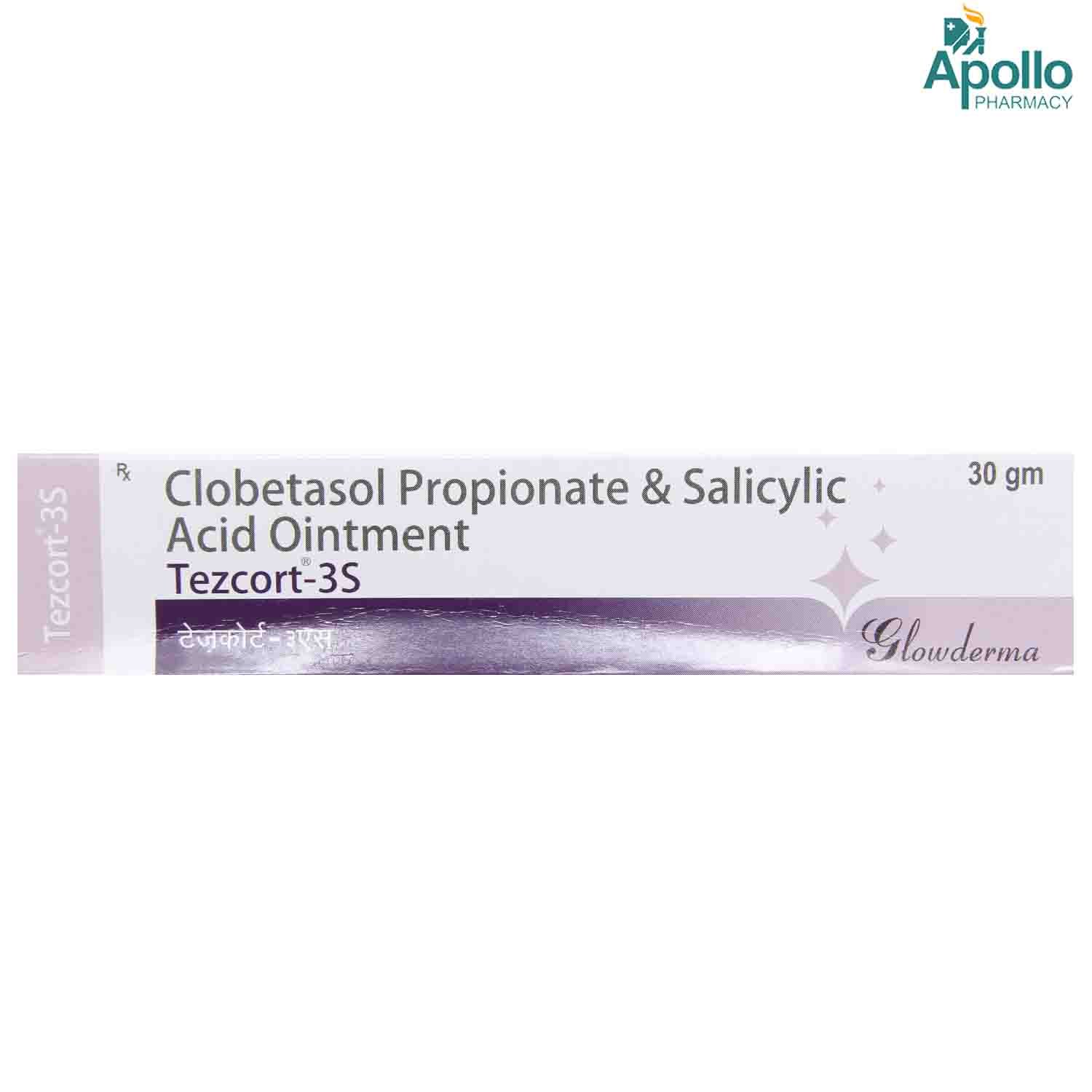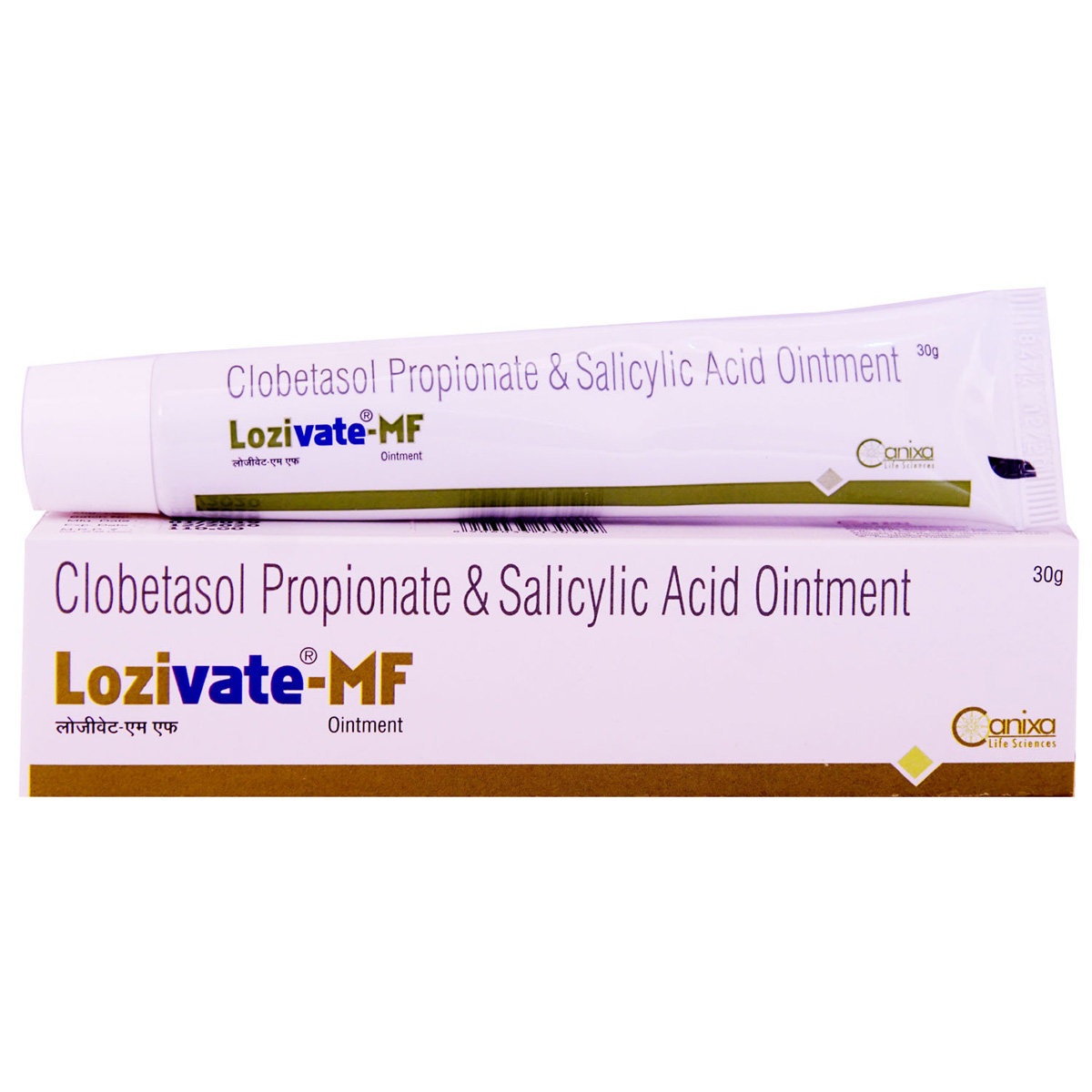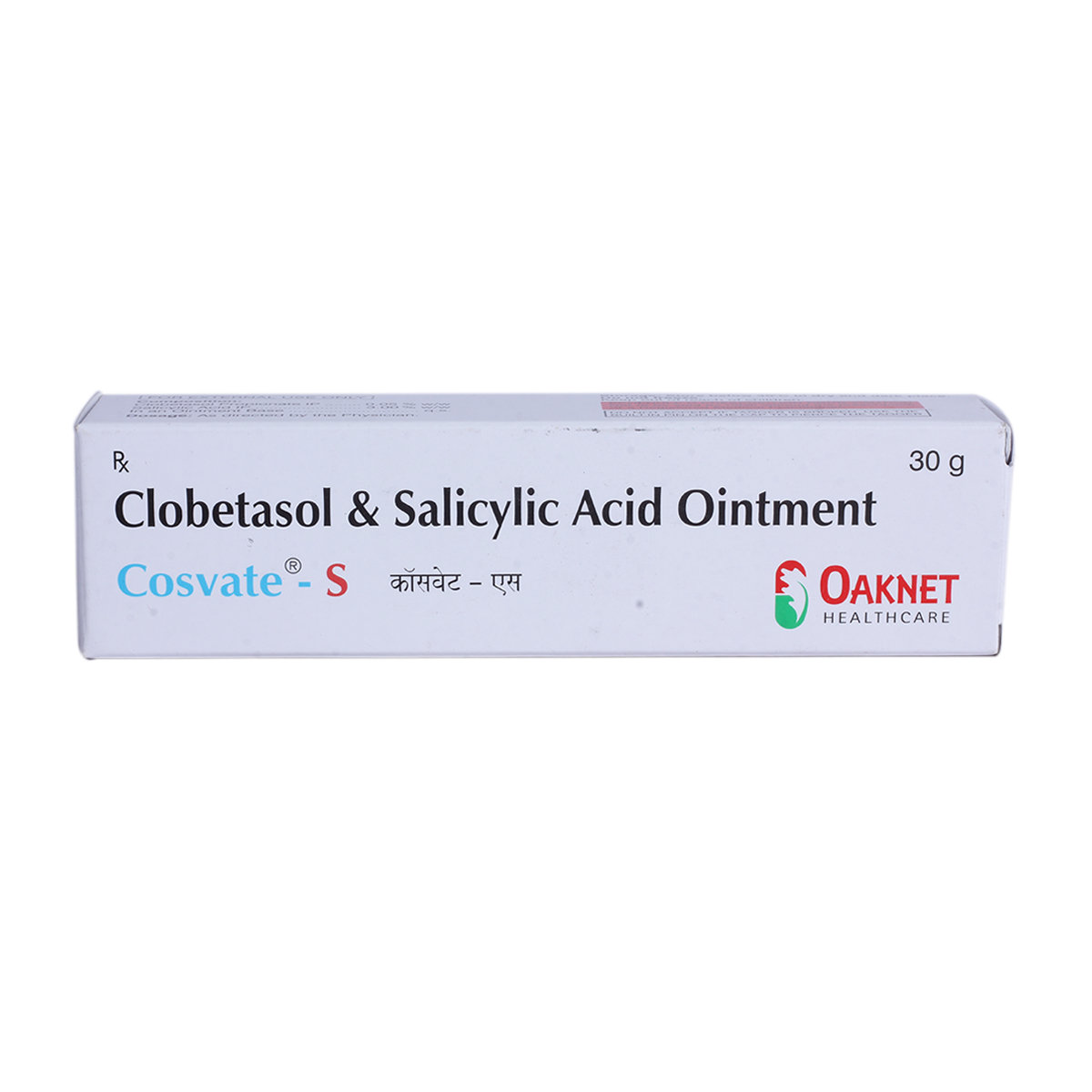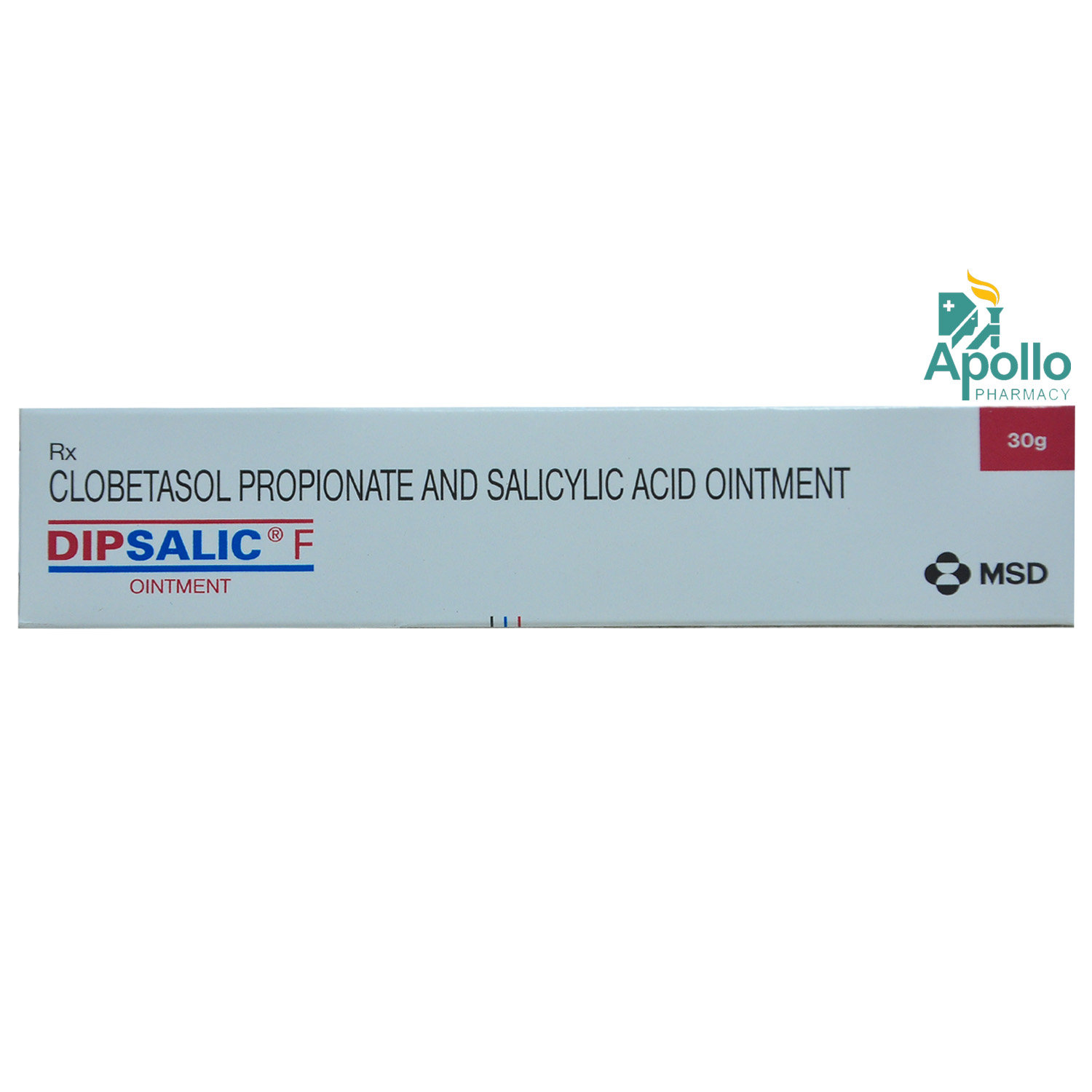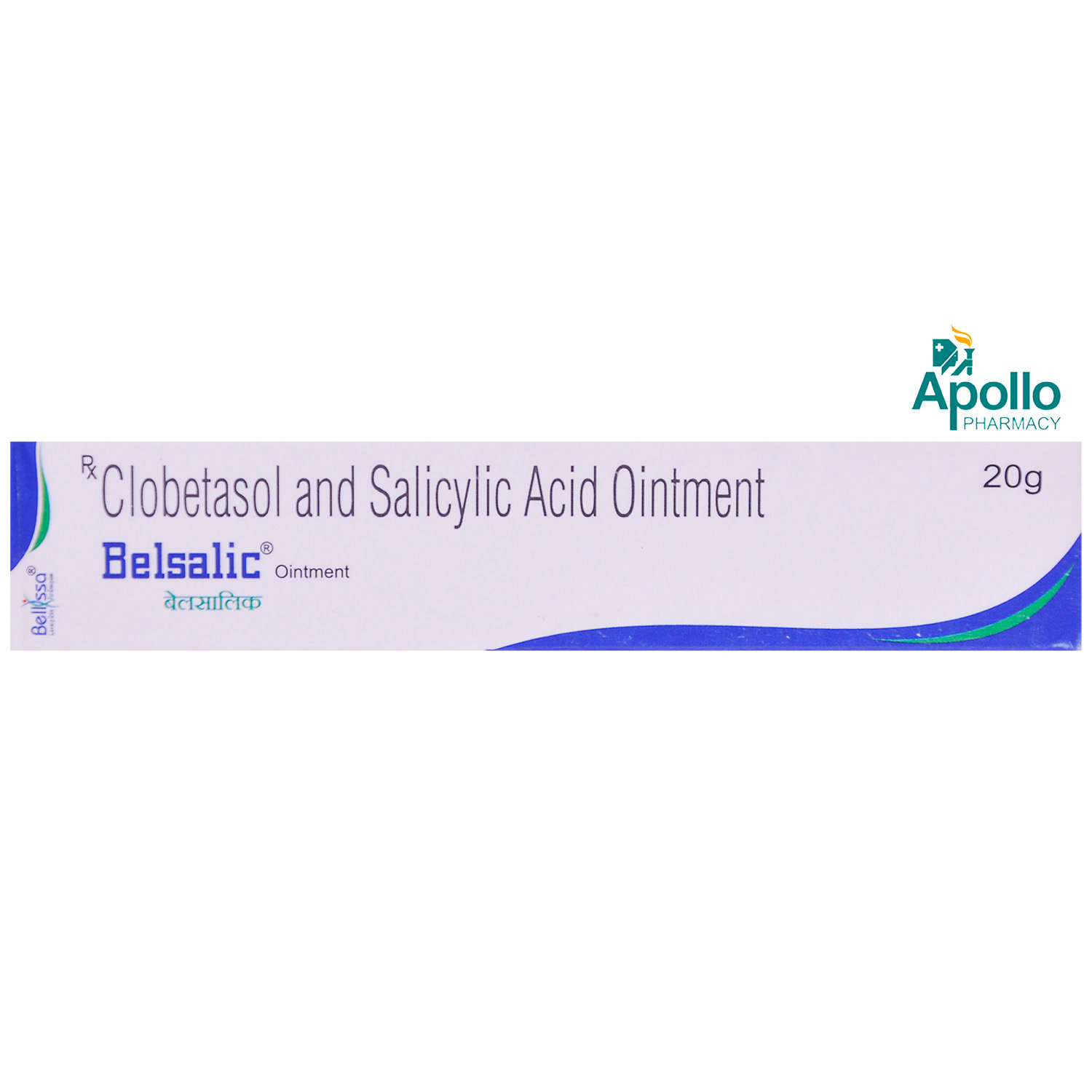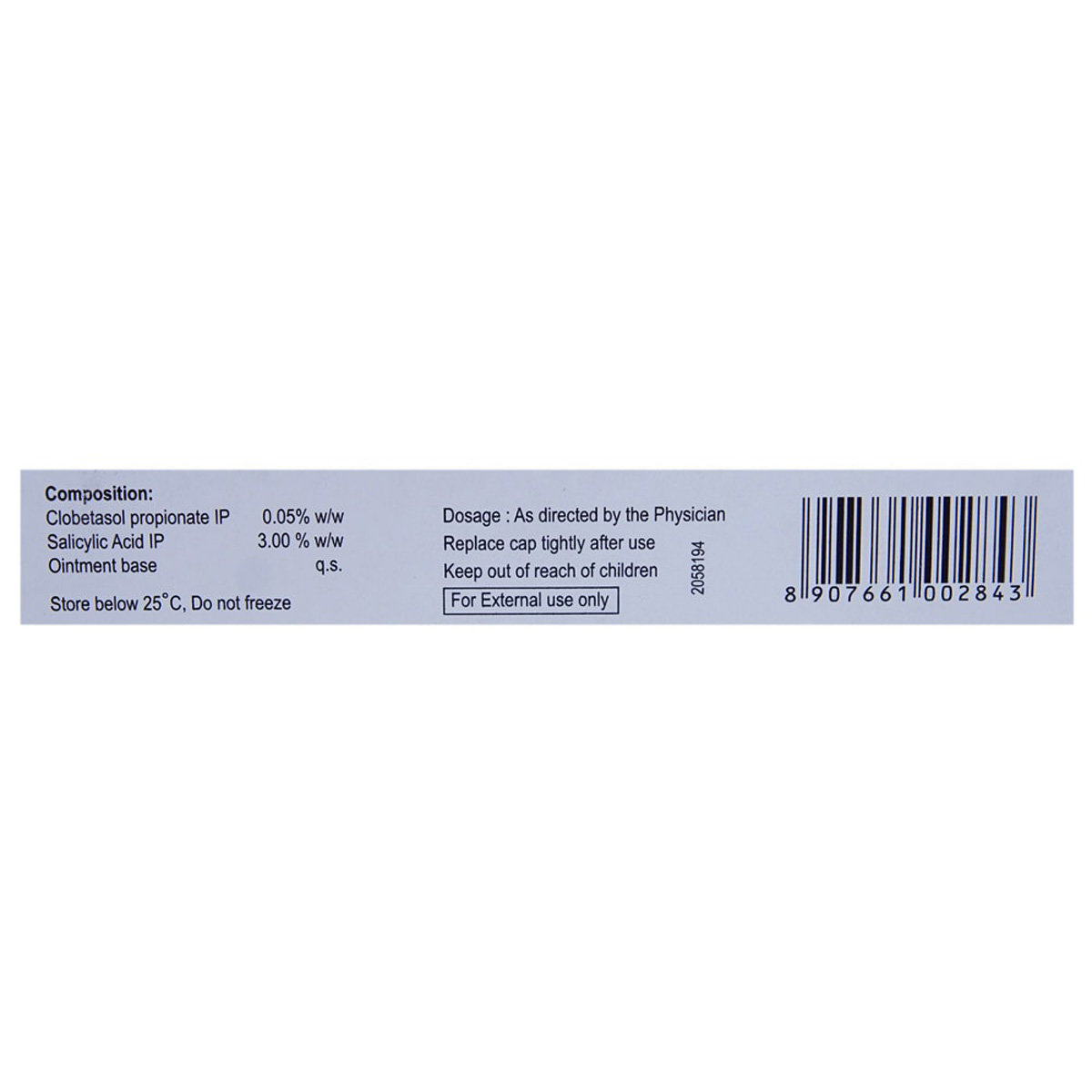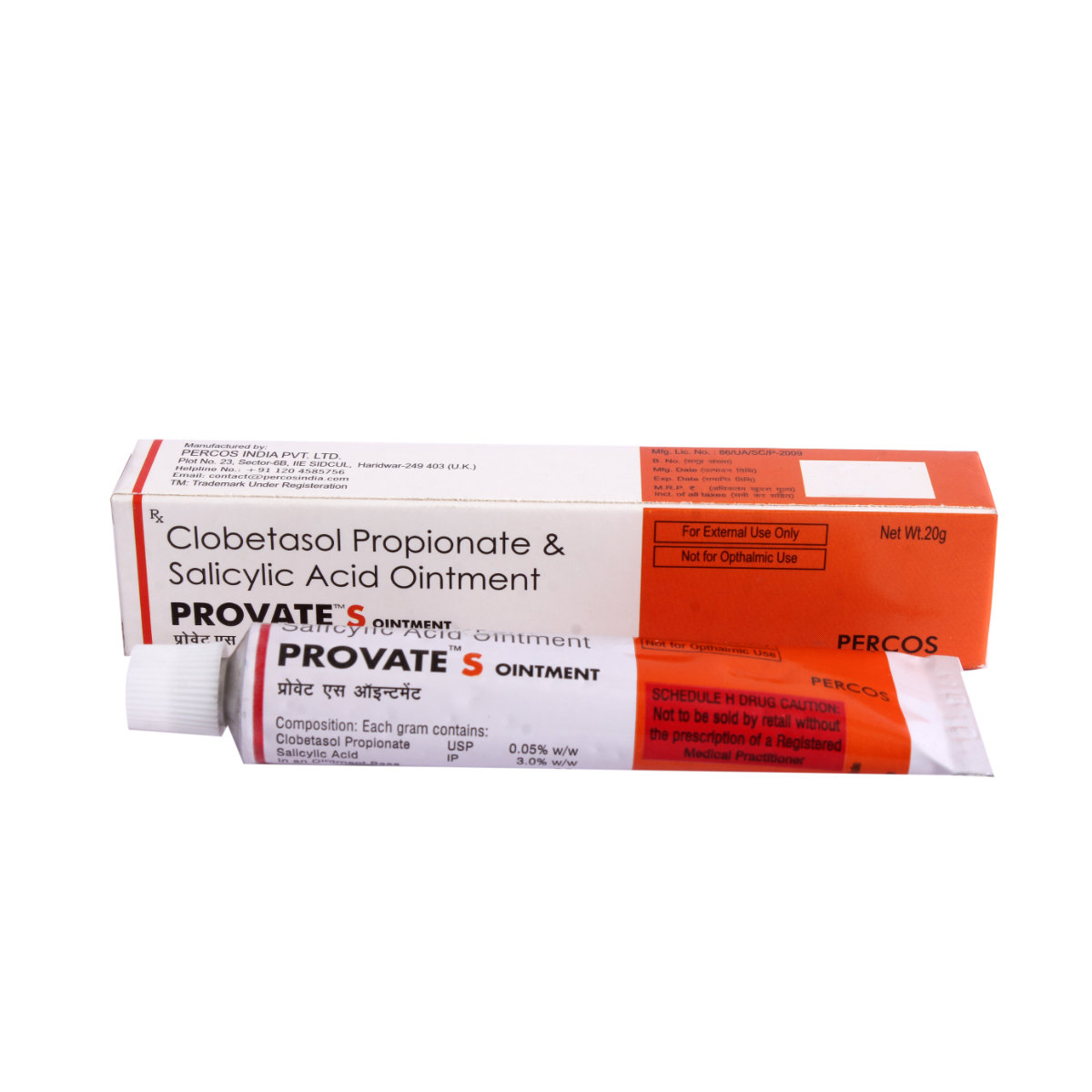- Home
- Zensalic-C Ointment
Zensalic-C Ointment Substitute
Zensalic-C Ointment Substitute
Medicine Composition:
CLOBETASOL-0.05%W/W+SALICYLIC ACID-3%W/WAll Substitutes & Brand Comparisons
RX
Topisal-3% Ointment 30 gm
Systopic Laboratories Pvt Ltd
₹111.5
(₹3.35/ 1gm)
5% CHEAPERRX
Zensalic-C Ointment 20gm
Zenith Drugs
₹76.5
(₹3.45/ 1gm)
2% CHEAPERRX
Validsol-S3 Ointment 30 gm
Skinocean Pharmaceuticals
₹127.5
(₹3.83/ 1gm)
8% COSTLIERRX
Tezcort 3S Ointment 30 gm
Glowderma Lab Pvt Ltd
₹142.5
(₹4.28/ 1gm)
20% COSTLIERRX
Hexsalic Ointment 30 gm
Hexadox Pharmaceuticals Pvt Ltd
₹150
(₹4.5/ 1gm)
27% COSTLIERRX
Lozivate-MF Ointment 30 gm
Canixa Life Sciences Pvt Ltd
₹163
(₹4.89/ 1gm)
38% COSTLIERRX
Topisal 3% Ointment 20 gm
Systopic Laboratories Pvt Ltd
₹111.5
(₹5.02/ 1gm)
41% COSTLIERRX
CSR 3 Ointment 40 gm
Resilient Cosmeceuticals Pvt Ltd
₹241.5
(₹5.44/ 1gm)
53% COSTLIERRX
Cosvate-S Ointment 30 gm
Oaknet Healthcare Pvt Ltd
₹195.5
(₹5.87/ 1gm)
65% COSTLIERRX
Emclobal-S Ointment 20 gm
Embark Lifescience Pvt Ltd
₹145
(₹6.53/ 1gm)
84% COSTLIERRX
Dipsalic F Ointment 30 gm
Fulford India Ltd
₹244.5
(₹7.34/ 1gm)
107% COSTLIERRX
BELSALIC OINTMENT 20G
Bellissa Pharmaceuticals Pvt Ltd
₹164
(₹7.38/ 1gm)
108% COSTLIERRX
Dipsalic F Ointment 20 gm
Fulford India Ltd
₹204
(₹9.19/ 1gm)
159% COSTLIERRX
Clop-S Ointment 20 gm
Liva Health Care Ltd
₹204.5
(₹9.21/ 1gm)
160% COSTLIERRX
Provate S Ointment 20 gm
Percos India Pvt Ltd
₹262.5
(₹11.82/ 1gm)
233% COSTLIER

When Should You Consider Switching from Zensalic-C Ointment?
Patients may explore substitutes in the following scenarios:
- High monthly cost of Zensalic-C Ointment
- Non-availability in local pharmacies
- Generic recommendation by a doctor
- Side effects or better tolerability with alternatives
What to Know Before Switching
Before you switch from Zensalic-C Ointment to another medicine, here are some important points to keep in mind:
Same salt, different brands:
Most substitutes contain the same active ingredient - CLOBETASOL-0.05%W/W+SALICYLIC ACID-3%W/W, but the fillers, coating, or manufacturing quality may vary slightly.
Consult your doctor first:
Even if the salt is the same, your doctor can confirm if the substitute is right for your condition, dosage, and health history.
Watch out for allergies or reactions:
Some people may react differently to certain brands due to inactive ingredients. If you notice any side effects, inform your doctor immediately.
Price ≠ effectiveness:
A lower-priced substitute doesn't mean it's less effective. Many generic medicines work just as well as branded ones.
Check the dosage form and strength:
Always match the substitute’s strength (e.g., 5mg, 10mg) and form (tablet, capsule, syrup) with what your doctor prescribed.
Uses
Zensalic-C Ointment is used in the treatment of eczema and psoriasis. The detailed uses of Zensalic-C Ointment are as follows:
- Treatment of Psoriasis: Zensalic-C Ointment can help reduce the symptoms of psoriasis, such as scaling, inflammation, and erythema, by promoting skin shedding and reducing excessive cell growth.
- Management of Eczema: The anti-inflammatory properties of the Zensalic-C Ointment can soothe irritated skin, provide relief from itching, and heal dry, flaky patches associated with eczema.
- Relief from Dermatitis: Zensalic-C Ointment can be effective in treating various forms of dermatitis, including contact dermatitis, by reducing inflammation and the associated discomfort.
- Control of Seborrheic Dermatitis: Zensalic-C Ointment can assist in managing seborrheic dermatitis, particularly on the scalp, by alleviating flaking and scaling while providing moisture to the affected area.
- Soothing Minor Skin Irritations: Zensalic-C Ointment can help treat minor skin irritations or rashes caused by various factors, promoting healing and reducing itchiness and redness.
Medicinal Benefits
- Zensalic-C Ointment is used in the treatment of eczema and psoriasis.
- Some types of eczema can also lead to blisters (a small bubble on the skin that is filled with serum and is caused by friction, burning, or other damage).
- When you take Zensalic-C Ointment, it works by blocking the production of certain chemical messengers (prostaglandins) that are responsible for making the skin red, swollen, and itchy.
- Zensalic-C Ointment softens, separates, and causes desquamation of the cornified epithelium or horny layer of skin, breaks down the clumps of keratin, removes dead skin cells and helps in the softening of the skin.
FAQs
The substitutes of Zensalic-C Ointment contain the same active salt(s) - CLOBETASOL-0.05%W/W+SALICYLIC ACID-3%W/W. However, they may differ in price, manufacturing quality, and inactive ingredients. Speak to your doctor to find a suitable option.
Switching to a generic substitute medicine in the place of Zensalic-C Ointment is often possible if it has the same salt, strength, and dosage form. But always check with your doctor before making any changes to your medication.
Generics versions of Zensalic-C Ointment are typically more affordable because they don’t include the original brand's research, development, and marketing costs. They contain the same active ingredient and are approved for safety and effectiveness.
Most people don’t notice any difference. However, some may react to different fillers or coatings. If you notice any unusual symptoms after switching, consult your doctor.
Make sure the new medicine has the same active salt, strength, dosage form. Always confirm the change with your doctor or pharmacist.
Substitutes of Zensalic-C Ointment meet the same safety and efficacy standards as Zensalic-C Ointment, but small differences in absorption or formulation can exist. A doctor can help you choose the right one for your needs.
Yes. Substitutes of Zensalic-C Ointment may vary in color, size, or shape due to differences in manufacturing and branding, but this does not affect how they work.
Yes, it’s generally safe to switch between multiple substitutes of Zensalic-C Ointment if they have the same salt and strength. However, always inform your doctor so they can monitor how your body responds.
Yes, many people safely use substitutes of Zensalic-C Ointment for long-term treatment. Just ensure it’s done under medical supervision.
If your symptoms stay under control or lab results remain stable, the substitute for Zensalic-C Ointment is likely working well. Regular follow-ups with your doctor are important.
Absolutely. Even with the same salt, small differences can affect how your body responds when switching from Zensalic-C Ointment to its substitute. Always consult your doctor before switching.
Zensalic-C Ointment treats the redness, swelling, itching, and discomfort of various skin conditions like eczema and psoriasis.
Yes, Zensalic-C Ointment should not be used on the face. It is advised not to use this medicine for more than the recommended duration to avoid unpleasant side-effects. Avoid applying a bandage or dressing to the affected area.
No, it is not advised to use Zensalic-C Ointment in more than the recommended dose as using the medicine in more than the prescribed quantity can lead to its excessive absorption into the body. It may also cause thinning or weakening or peeling of the skin.
No, it is not advised to stop using Zensalic-C Ointment even after your symptoms are relieved. You should complete the full course of treatment. You might see improvement in your symptoms but the disease might not be cured completely.
It is advised to keep this medicine in the container or the pack it came in and keep it tightly closed. Store it as per the instructions mentioned on the pack or label. Dispose of the medicine which is unused. Keep away from pets, children, and other people.
Zensalic-C Ointment should be used according to the directions given by the doctor. Read the label before use. The medicine should be applied in sufficient quantity to cover the affected areas. It is usually applied two or three times a day to the affected areas. Make sure to wash your hands before and after using Zensalic-C Ointment.
No, Zensalic-C Ointment cannot be used for a long time as it can cause skin atrophy.
No, Zensalic-C Ointment cannot be used for bacterial infections.
Yes, Zensalic-C Ointment is a well-established treatment for psoriasis. It contains clobetasol and salicylic acid. Clobetasol is a strong steroid that reduces inflammation, redness, and itching, while salicylic acid gently exfoliates the skin, removing dead cells and smoothing texture. Together, they provide effective treatment for those with psoriasis.
It is not recommended to use Zensalic-C Ointment on your face without a doctor's advice, as it may act harsh on your face and cause irritation or other side effects. Consult a dermatologist for a safe and suitable treatment.
Zensalic-C Ointment should be used in the dose and duration as advised by the doctor. Apply a sufficient quantity on the affected area. You are advised to check the label for directions before use. It is for external use only. Make sure to wash your hands before and after using this medicine.
Zensalic-C Ointment contains clobetasol and salicylic acid. Clobetasol is a steroid that works by blocking the production of certain chemical messengers (prostaglandins) that are responsible for making the skin red, swollen, and itchy. Salicylic acid is a keratolytic medicine (that softens, separates, and causes desquamation (peeling) of the cornified epithelium or horny layer of skin) which breaks down the clumps of keratin, removes dead skin cells, and helps in softening of the skin. Together, they help treat eczema and psoriasis.
The common side effects of Zensalic-C Ointment, that may occur in some individuals such as peeling of the skin, thinning of the skin, burning, itching, irritation, and redness at the application site. However, these effects vanish over time. Please consult your doctor if you experience any side effects worsening.
Buy best Dermatology products by
Glenmark Pharmaceuticals Ltd
Canixa Life Sciences Pvt Ltd
Klm Laboratories Pvt Ltd
Sun Pharmaceutical Industries Ltd
Cipla Ltd
Intas Pharmaceuticals Ltd
Ajanta Pharma Ltd
East West Pharma India Pvt Ltd
Dr Reddy's Laboratories Ltd
Abbott India Ltd
Brinton Pharmaceuticals Ltd
Skinocean Pharmaceuticals
Leeford Healthcare Ltd
Amwill Healthcare Pvt Ltd
Alkem Laboratories Ltd
Atopic laboratories Pvt Ltd
Hegde & Hegde Pharmaceutica Llp
Torrent Pharmaceuticals Ltd
Dermacia Healthcare
Palsons Derma Pvt Ltd
Oaknet Healthcare Pvt Ltd
Yaher Pharma
Ipca Laboratories Ltd
Med Manor Organics Pvt Ltd
Micro Labs Ltd
Dermocare Laboratories Gujarat Llp
Talent India Pvt Ltd
Apex Laboratories Pvt Ltd
Mankind Pharma Pvt Ltd
Kivi Labs Ltd
Nemus Pharmaceuticals Pvt Ltd
Systopic Laboratories Pvt Ltd
Menarini India Pvt Ltd
Regaliz Medicare Ltd
Zydus Cadila
Ethinext Pharma
Mohrish Pharmaceuticals Pvt Ltd
Inex Medicaments Pvt Ltd
Lupin Ltd
Mrhm Pharma Pvt Ltd
Newtrimed Healthcare Pvt Ltd
Hbc Dermiza Healthcare Pvt Ltd
Praise Pharma
Zydus Healthcare Ltd
Eskon Pharma
GlaxoSmithKline Pharmaceuticals Ltd
La Pristine Bioceuticals Pvt Ltd
Wallace Pharmaceuticals Pvt Ltd
Glowderma Lab Pvt Ltd
Biocute Life Care
Sol Derma Pharmaceuticals Pvt Ltd
Macleods Pharmaceuticals Ltd
Aurel Biolife
Connote Healthcare
Ethicare Remedies Pvt Ltd
Galcare Pharmaceuticals Pvt Ltd
Percos India Pvt Ltd
Rockmed Pharma Pvt Ltd
Kaizen Drugs Pvt Ltd
Zee Laboratories Ltd
Elder Pharmaceuticals Ltd
Gary Pharmaceuticals Pvt Ltd
Rely On Pharmaceuticals
Karlin Pharmaceuticals & Exports Pvt Ltd
Rhine Biogenics Pvt Ltd
Yap Bioceuticals
Lyra Laboratories Pvt Ltd
Wockhardt Ltd
Alniche Life Sciences Pvt Ltd
La Med Healthcare Pvt Ltd
Prism Life Sciences Ltd
Akumentis Healthcare Ltd
Apple Therapeutics Pvt Ltd
Leogard Pharmaceuticals Pvt Ltd
P and P Dermaceuticals Pvt Ltd
Adonis Laboratories Pvt Ltd
Arka Vital Science Pvt Ltd
Capital Pharma
Eumedica Pharamceuticals
Indiabulls Pharmaceuticals Pvt Ltd
Albatross Healthcare Pvt Ltd
Dermajoint India
Dermarex HealthCare India Pvt Ltd
Yash Pharma Laboratories Pvt Ltd
Glasier Wellness Inc
Iceberg Health Care Pvt Ltd
Grace Derma Healthcare Pvt Ltd
Oziel Pharmaceuticals Pvt Ltd
Salve Pharmaceuticals Pvt Ltd
Bioswizz Pharmaceuticals Ltd
FDC Ltd
Medcure Organics Pvt Ltd
Entod Pharmaceuticals Ltd
Indolands Pharma Pvt Ltd
Jenburkt Pharmaceuticals Ltd
Olcare Laboratories Pvt Ltd
Anhox Healthcare Pvt Ltd
Bellissa Pharmaceuticals Pvt Ltd
Biochemix Health Care Pvt Ltd
Dabur India Ltd
BODY CREAM
Body Lotion
Soap
Face Cream
Shampoo
Sun Screen
Face Gel
Face Wash
HAIR SOLUTION
BODY GEL
Face Serum
Hair Serum
Hair Lotion
Dusting Powder
ANTISEPTIC
Body Wash
Face Lotion
FACE CLEANSER
Body Spray
Foot Cream
Conditioner
Eye Cream
Eye Gel
Cleanser
Hair Cream
Hair Gel
Hair Spray
FUNGAL INFECTION
Hair Oil
Sanitizer
Specialty Supplements
Face Mask
Skin Ointment
Lip Balm
Capsule
Eye Serum
Intimate Wash
Hand Cream
Facial Spray
Face Toner
Hair Mask
Hand Wash
SPECIALITY SUPPLEMENT
Tablet
BABY SUNSCREEN
Body Butter
Body Scrub
EYE SOLUTION
FACIAL WIPE
Gargle
Hair Color
Hair Tonic
Intimate Spray
Lip Serum
VITAMIN D
